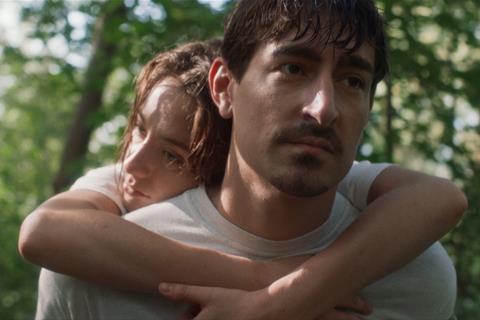Panorama title explores the extent of family ties

Dir. Sarah Miro Fischer. Germany/Spain. 2025. 97mins
For chaotic, unanchored Rose (Marie Bloching), a nurse in a prenatal unit, her older brother Sam (Anton Weil) is a rock. He grounds her, picks up the pieces, and lets her crash on his sofa when her relationship with her girlfriend implodes. He’s the one certainty in her life. So when Sam is accused of rape and Rose, who was half-asleep on the sofa in the room next door when the alleged attack took place, is called to testify, it calls into question not just Sam’s character, but also her own. This accomplished feature debut from Sarah Miro Fischer takes an intimate look at conflicted allegiances; the fallible men who commit monstrous acts and the family members who thought they knew them.
An intimate look at conflicted allegiances
Intimate in scope, the picture draws much of its power from Bloching’s magnetic, intuitive work in the central role. Just as Rose is searching for answers, so is the camera. There’s a kinship with Eva Trobisch’s All Is Good, another performance-driven story of a woman dealing with the aftermath of a rape. Like Trobisch’s debut, The Good Sister should be warmly received at further festivals and will serve as a persuasive calling card for Fischer going forward. Its small scale may mean it struggles to assert itself theatrically but, with the right distributor, this could be a talking point release that should connect with younger female audiences.
Bloching’s performance is beautifully judged, and so is the cinematography from Selma von Polheim Gravesen. The camera works in tandem with the actors and harmonises with the physicality of the performances. There’s an eloquent shift in the film’s framing as the story progresses. Initially, when Rose stumbles into her brother’s apartment late at night (tellingly she has her own key), the siblings are intertwined within the frame. Her head on his shoulder, her legs sprawled across his: it’s as though the line that divides them as individual entities is blurred.
This changes after the charges are made against Sam, and Rose starts to weigh her loyalty to her brother against an instinctive female solidarity. Increasingly, Rose is isolated in the shot, the gravity of what’s happening outside of the frame playing out in her expression. In many ways, this is a coming of age film, in which a young woman who has leaned into the role of the family fuck-up suddenly realises that it’s time to be the grown-up.
There are moments in the film in which the symbolism is perhaps a little too overt: troubled by her own conscience, Rose fixates on a dripping tap in Sam’s kitchen. She tries, unsuccessfully, to fix it with a wrench. Then she opens the cupboard beneath the sink to reveal an unsavoury mess of damp stains and mould. There is, the film stresses emphatically, something rotten beneath this seemingly benign surface.
Other scenes are more effective. One of the most potent unfolds when Rose, impulsively and without fully thinking out what she hopes to achieve, visits the beauty salon where Sam’s accuser Elisa (Laura Balzer, making a considerable impact with just two scenes) works. It’s clear that the young woman recognises her – they locked eyes briefly as she was fleeing on the night in question, something that Rose has flatly denied in her police statement. But they go through the pantomime of the salon appointment, with Rose submitting to her first bikini wax. It’s more painful than she could have imagined. Acknowledging her discomfort, Elisa asks coldly and pointedly, “Do you want me to stop?” Both women understand the significance of her choice of words, every one a stinging recrimination.
Production company: German Film and Television Academy Berlin GmbH (DFFB), Arkanum Pictures, Nephilim Producciones
International sales: New Europe Film Sales, info@neweuropefilmsales.com
Producers: Janna Fodor, Nina Sophie Bayer-Seel
Screenplay: Sarah Miro Fischer, Agnes Maagaard Petersen
Cinematography: Selma von Polheim Gravesen
Production design: Alina Dunker
Editing: Elena Weihe
Music: Francesco Lo Giudice
Main cast: Marie Bloching, Anton Weil, Proschat Madani, Laura Balzer, Jane Chirwa, Aram Tafreshian, David Vormweg






![The Brightest SunScreen[Courtesy HKIFF]](https://d1nslcd7m2225b.cloudfront.net/Pictures/274x183/3/5/0/1448350_thebrightestsunscreencourtesyhkiff_312678.jpg)















![The Brightest SunScreen[Courtesy HKIFF]](https://d1nslcd7m2225b.cloudfront.net/Pictures/100x67/3/5/0/1448350_thebrightestsunscreencourtesyhkiff_312678.jpg)

